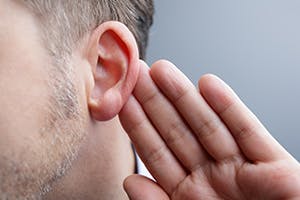No matter what industry you work in, there is always a risk for noise-induced hearing loss (NIHL). Hearing loss is the most common workplace condition in the United States, with 22 million Americans encountering potentially hazardous noise levels on the job.
Work-Related Hearing Risk Factors
The tiny hair cells in your ears that send audio signals to your brain become damaged and die off when exposed to noises louder than 85 decibels. That includes diesel trucks, lawnmowers, food processors, hand drills, belt sanders, jackhammers, emergency sirens, and jet engines. The risk of workplace hearing loss is determined by a sound’s volume and duration and your distance and length of exposure.
Here are a few industries regularly exposed to hazardous noises:
- Music
- Agriculture
- Manufacturing
- Constructing
- Emergency medical and dispatch
- Mining
- Airlines
How Hearing Loss Affects Your Job
Hearing loss impacts your safety and the safety of your coworkers. Workplace hearing loss can diminish your reaction time to the moving parts of your daily tasks. You may miss a coworker calling your name or an emergency siren sounding.
Communicating with coworkers in an office setting can get tricky and you may miss important details during meetings. Miscommunications and frustrations can cause social isolation and poor relations with coworkers, supervisors, and clients.
Prevent And Reduce Hearing Loss
Advocating for yourself is essential for effective hearing loss prevention. If you’re struggling to do your job, or need assistance, talk to your supervisor. They can’t help if they don’t know your situation.
Here are some other tips to keep your hearing safe at work:
- Determine the source of your daily noise exposure
- Place a barrier between yourself and the source of sound
- Wearing hearing protection like earplugs or earmuffs
- Take breaks from loud environments to rest your ears
- Limit exposure to ototoxicants like mercury, lead, carbon monoxide, pesticides, and toluene
- Ask about hearing loss prevention programs
- Download a decibel app on your smartphone
Start your hearing health journey at Hearing Associates. Call 888.760.2032 or contact us online for service information or schedule an appointment.


